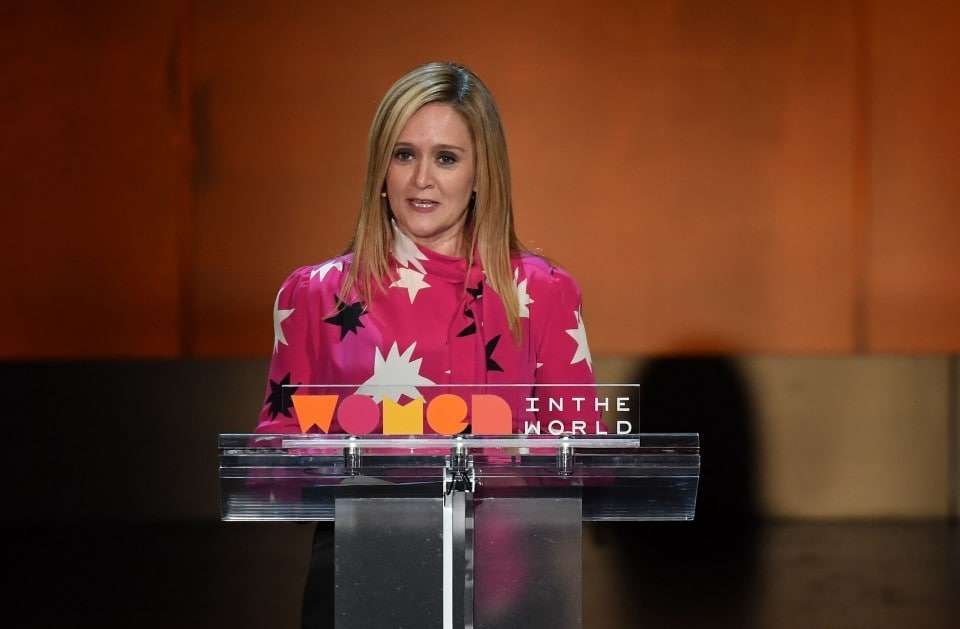The Volokh Conspiracy
Mostly law professors | Sometimes contrarian | Often libertarian | Always independent
How late-night comics helped pave the way for President Trump

Late-night comedy is more political than ever. It both reflects and influences our politics, but not always in the ways its hosts and producers intend.
In the Atlantic, Caitlin Flanagan has an exceptionally perceptive (if also dispiriting) essay on how the increasingly shrill, partisan and cruel smugness of late-night comedy helped fuel the cultural resentments that facilitated Donald Trump's victory last fall.
Here's a taste:
Trump has it coming, and so do the minions pouring out of his clown car, with their lies and their gleeful disregard for what Nick Carraway called "the fundamental decencies." But somewhere along the way, the hosts of the late-night shows decided that they had carte blanche to insult not just the people within this administration, but also the ordinary citizens who support Trump, and even those who merely identify as conservatives. In March, Samantha Bee's show issued a formal apology to a young man who had attended the Conservative Political Action Conference and whom the show had blasted for having "Nazi hair." As it turned out, the young man was suffering from Stage 4 brain cancer-which a moment's research on the producers' part would have revealed: He had tweeted about his frightening diagnosis days before the conference. As part of its apology, the show contributed $1,000 to the GoFundMe campaign that is raising money for his medical expenses, so now we know the price of a cancer joke. …
[W]hile for Bee, as for so many in her field, Michelle Obama's "When they go low, we go high" may have been a ravishing meme, Trump's mockery of a war hero, grieving parents, and a disabled man showed how you get the job done. When John Oliver told viewers that if they opposed abortion they had to change the channel until the last minute of the program, when they would be shown "an adorable bucket of sloths," he perfectly encapsulated the tone of these shows: one imbued with the conviction that they and their fans are intellectually and morally superior to those who espouse any of the beliefs of the political right. Two days before the election, every talking head on television was assuring us that Trump didn't have a chance, because he lacked a "ground game." After his victory, one had to wonder whether some part of his ground game had been conducted night after night after night on television, under flattering studio lights and with excellent production values and comedy writing.
Though aimed at blue-state sophisticates, these shows are an unintended but powerful form of propaganda for conservatives. When Republicans see these harsh jokes-which echo down through the morning news shows and the chattering day's worth of viral clips, along with those of Jimmy Kimmel, Stephen Colbert, and Seth Meyers-they don't just see a handful of comics mocking them. They see HBO, Comedy Central, TBS, ABC, CBS, and NBC. In other words, they see exactly what Donald Trump has taught them: that the entire media landscape loathes them, their values, their family, and their religion. It is hardly a reach for them to further imagine that the legitimate news shows on these channels are run by similarly partisan players-nor is it at all illogical. No wonder so many of Trump's followers are inclined to believe only the things that he or his spokespeople tell them directly-everyone else on the tube thinks they're a bunch of trailer-park, Oxy-snorting half-wits who divide their time between retweeting Alex Jones fantasies and ironing their Klan hoods.
I suspect this analysis may ring hollow to some VC readers. I might have felt the same way - back when I lived in Washington. From my perch in northeast Ohio, however, I hear this sentiment all the time: "Sure, Trump has a troubled relationship with the truth (and I wish he'd stop with the tweeting), but it's not like we can trust the mainstream media; they lie, too, and they're not on our side."
Flanagan adds:
Trump's appearance with [Jimmy] Fallon may mark a moment in our national story. It was the last fleeting glimmer of anything approaching goodwill-and possibly of anything deserving it-between political factions. Since then it's been a race to the bottom, as the crudeness of the president is matched by that of "the resistance," with all of us being judged by how well-how thoroughly and consistently and elaborately-we can hate each other. Nothing about this time is elevating. It's just all of us-on the left and on the right-sworn to our bitterness and our anger.
It's not elevating, for sure. But, as she said, at least we now know the price of a cancer joke.


Show Comments (0)